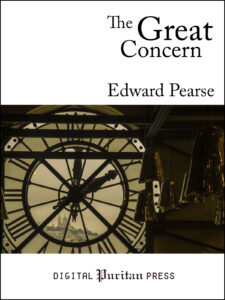 For beginners looking to ease into Puritan literature, here are some simpler works by Puritan authors that are accessible and provide a good starting point:
For beginners looking to ease into Puritan literature, here are some simpler works by Puritan authors that are accessible and provide a good starting point:
- “The Bruised Reed” by Richard Sibbes – A gentle and encouraging treatise on finding comfort and hope in Christ.
- “The Rare Jewel of Christian Contentment” by Jeremiah Burroughs – Offers practical guidance on cultivating contentment in all circumstances.
- “A Lifting Up for the Downcast” by William Bridge – Addresses the spiritual struggles of a discouraged soul and offers biblical remedies.
- “The Pilgrim’s Progress” by John Bunyan – While longer, its allegorical style makes it relatively approachable, and it remains one of the most well-known and loved works.
- “All Things for Good” (original title: A Divine Cordial) by Thomas Watson – Explores the doctrine of God’s providence and how even trials can work for the good of believers.
- “The Godly Man’s Picture” by Thomas Watson – Describes the characteristics of a truly godly person, providing insights into Christian character.
- “The Art of Divine Contentment” by Thomas Watson – Similar to “The Rare Jewel of Christian Contentment,” this work delves into finding contentment in God.
- “The Mystery of Providence” by John Flavel – Examines the ways in which God’s providence is at work in the lives of believers.
- “A Sure Guide to Heaven” (original title: An Alarm to the Unconverted) by Joseph Alleine – A call to genuine conversion and seeking God, with clear guidance for those seeking salvation.
- “The Mortification of Sin” by John Owen – focusing on the practical aspects of overcoming sin.
These works provide a solid foundation for exploring Puritan thought and spirituality without overwhelming newcomers with complex theological discussions. As you become more comfortable with their style and content, you can gradually delve into more comprehensive writings by Puritan authors.
For those of us who have been reading the Puritans for years, what works do you suggest to those expressing an interest in drawing from abundant treasury?

 Edward Pearse (c.1633–1674) was a Puritan pastor in London during a period of immense political and social upheaval in England. He died at forty of tuberculosis, but during his final months, he wrote this book as a guide to his congregation, in order to direct them to life’s one ‘great concern,’ namely, “to have all things set right, well-ordered, and composed in the matters of the soul before leaving this world.” With wonderful clarity, the author shows how putting the spiritual concerns of the soul into the best posture possible for the hour of death is in actuality the key to living an abundant, God-honoring life. Or as Pearse explains:
Edward Pearse (c.1633–1674) was a Puritan pastor in London during a period of immense political and social upheaval in England. He died at forty of tuberculosis, but during his final months, he wrote this book as a guide to his congregation, in order to direct them to life’s one ‘great concern,’ namely, “to have all things set right, well-ordered, and composed in the matters of the soul before leaving this world.” With wonderful clarity, the author shows how putting the spiritual concerns of the soul into the best posture possible for the hour of death is in actuality the key to living an abundant, God-honoring life. Or as Pearse explains: In addition to editing, over the past few months I have been busy at work each day, nibbling away at a number of improvements to the website that I hope will make it more useful to you. For example:
In addition to editing, over the past few months I have been busy at work each day, nibbling away at a number of improvements to the website that I hope will make it more useful to you. For example: In this
In this